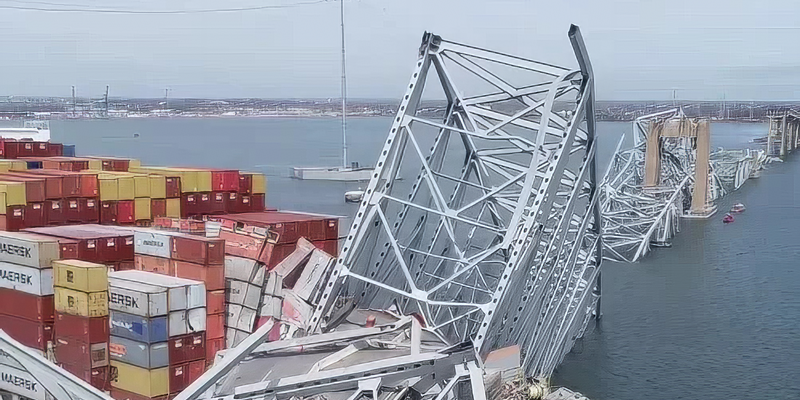
April 4, 2024
Early on the morning of Tuesday, March 26, as the Francis Scott Key Bridge collapsed in Baltimore, Md., local television and radio broadcasters leapt into action to report on the tragedy as details emerged. Meanwhile, misinformation about the incident proliferated on social media. From ill-informed speculation as witnesses tried to understand the shocking images to fringe conspiracy theories, social media once again created a perfect environment for misinformation and confusion to flourish.
In this media landscape, fact-based, reliable journalism is more important than ever – and that’s what local broadcasters do best.
"From the minute we started the show, the first thing we’re saying is we are finding this out with you. We are going through this with you." – Jessica Dutra, Mix 106.5’s Kramer & Jess
Time and again, studies show that broadcast networks and local stations provide Americans’ most trusted news. More Americans believe local broadcasting does a better job of solving problems in our communities, educating people about important local issues and providing information than social media and personal networks.
Broadcast companies have developed dedicated programs to combat misinformation on social media. For example, Tegna’s VERIFY has published several pieces about false claims and incorrectly labeled images about the bridge collapse. NBC News reported on the sources of conspiracy theories.
In Baltimore, local broadcasters have been there for their city since the crisis occurred, providing information and solace to their community as well as sharing news resources with their partners in national networks.
“When a tragedy like this hits any city, the actions of community stations, both commercial and public, are absolutely critical. We are supplying much-needed information to the community with familiar and recognized voices – trusted individuals,” WYPR Baltimore’s Craig Wagler told Radio Ink. “It’s a national story as well. And in that same way, we’re providing much of the reporting to our NPR network and many of our other partners…. But we bring our unique understanding of how this community works to that. Our reporters are so invested in the different facets of storytelling and how this impacts Baltimore and the Baltimore region.”
Fostering personal relationships with their communities, local stations provide unique solace and support. Steve Kramer and Jessica Dutra, morning hosts at Audacy station Mix 106.5 in Baltimore, described their emotional morning to Radio Ink. “You just have to be exactly where they are. You can’t be above them. You can’t try to dictate how the room should feel. I think you’ve got to feel exactly what they’re feeling and that’s going to be different. We’ve unfortunately been through so many different tragedies, some local, some national, and every time you have to meet people exactly where they are,” Kramer said.
“Whenever we feel sad about something, shocked by something — you look to things that comfort you and part of that can just be ‘my routine,’” Laurie DeYoung, morning show host at iHeart Media’s 93.1 WPOC in Baltimore told Inside Radio. “Part of my routine as a listener can be, ‘Gee, I listen to those guys from this time to this time every day and knowing they’re here and they’re talking about the things that are affecting me…’ I do think that is a comforting thing.”
Dan Joerres, president and general manager of Hearst Television’s WBAL-TV in Baltimore, cut through the speculation with an editorial calling for reflection on the victims, survivors and their families. “I am confident we will collectively demonstrate resilience and showcase to the nation the unwavering strength that symbolizes Marylanders,” he said.
With well-known, trusted personalities and established news brands, broadcasters can bring together these inspiring, unifying messages with straightforward fact-based reporting to provide the news our nation relies on in a crisis.
More than 2.46 million American jobs depend on broadcasting. The local broadcast television and radio industry and the businesses that depend on it generate $1.19 trillion annually for the nation's economy.